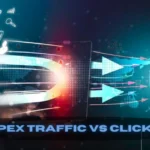Introduction
So, you’ve been thinking about launching start nixcoders.org blog? Great idea! In today’s ever-connected world, starting a blog isn’t just about writing – it’s about building something bigger than yourself. start nixcoders.org blog is set to become a digital hub for tech enthusiasts, coders, and knowledge seekers who want to learn, connect, and grow. But before we dive into the nitty-gritty, let’s understand the “why” behind it.
Why Start a Blog in Today’s Digital Age?
The Power of Blogging
Blogging is more than just journaling your thoughts online. It’s a voice amplifier, a platform to educate, engage, and influence. Millions rely on blog posts to learn new skills, solve technical problems, or simply stay updated.
Blogging as a Knowledge Repository
Every tutorial, how-to guide, or code snippet you share adds to a growing library of community-driven knowledge. Over time, your blog becomes a go-to place for curated, high-quality information.
Building a Personal Brand
Blogging is one of the fastest ways to establish credibility and authority in any niche. For tech professionals, this means more job opportunities, invitations to speak at events, and collaborations.
The Purpose of NixCoders.org Blog
Centralized Knowledge Sharing
NixCoders.org isn’t just another blog – it’s a platform for collective wisdom. Developers can come together to share experiences, document processes, and make the tech world a little easier for everyone.
Fostering Tech Community Growth
Think of it like your favorite tech meetup – but online, 24/7. It’s a place to connect, learn, and grow with others who share your passion.
Creating a Safe Learning Space
Let’s be honest – the internet can sometimes be overwhelming. NixCoders.org aims to be a welcoming, inclusive, and beginner-friendly space where everyone feels comfortable asking questions and sharing insights.
Core Features of NixCoders.org Blog
Clean, Developer-Friendly UI
A tech blog should look like it’s built by developers – because it is! Expect a minimalist, dark-mode friendly interface with distraction-free reading and fast loading times.
Categorized Content
Whether it’s DevOps, Cloud Computing, Web Development, or Machine Learning, NixCoders.org will offer well-organized categories for easy navigation.
Contributor System
This isn’t a one-man show. NixCoders.org will thrive on community. Contributors will be able to submit posts, get credited, and even build their portfolios.
Steps to Start the NixCoders.org Blog
Choosing the Right Platform
You’ll need to decide whether you want to go with a CMS like WordPress, or a static site generator like Hugo, Jekyll, or Next.js. The latter is usually faster and more secure – perfect for devs.
Setting Up Hosting and Domain
A platform like Vercel or Netlify is great for deploying static sites. Make sure your domain (nixcoders.org) is properly linked and secured with HTTPS.
Designing the Interface
Think simplicity. Use a responsive design that looks great on mobile, tablets, and desktops. Minimalist color schemes and syntax-highlighted code blocks are a must.
Adding Essential Plugins
If you’re using a CMS, consider plugins for:
- SEO (Yoast, RankMath)
- Security (Wordfence)
- Caching (WP Rocket)
- Markdown support
Choosing a CMS or Framework
WordPress vs Static Site Generators
WordPress offers ease of use, but static site generators offer speed, security, and full control. Developers may prefer Hugo, Next.js, or Jekyll for these reasons.
Why Static May Be Better for Developers
Static sites can be hosted for free, load faster, and integrate beautifully with Git workflows – perfect for a developer-centric blog.
Content Strategy
Planning Content Buckets
Segment your content into buckets like:
- Tutorials
- Opinion Pieces
- Tool Reviews
- Dev Logs
Frequency of Posting
Aim for consistency over quantity. Start with one high-quality post per week, then scale as your team grows.
Inviting Contributors
Building a Contributor Community
Invite peers, GitHub followers, or LinkedIn contacts. Let them know that NixCoders.org is built by devs, for devs.
Contribution Guidelines
Create a public contribution guide with:
- Markdown standards
- Formatting rules
- Licensing terms
- Credit and backlinks
SEO Optimization for Greater Reach
On-Page SEO Best Practices
Include your primary keywords in H1, H2 tags, meta titles, and alt texts. Break content into digestible sections for readability.
Keyword Research Tools
Use tools like:
- Ahrefs
- SEMrush
- Ubersuggest
- Google Keyword Planner
Using Meta Tags and Descriptions
Add compelling meta descriptions to increase CTR and Open Graph tags for better social sharing.
Technical SEO for Developers
Optimizing Site Speed
Compress images, lazy load content, and use CDN services like Cloudflare.
Mobile Responsiveness
Test using Google’s Mobile-Friendly Test and make sure it passes!
Schema Markup for Blogs
Use JSON-LD to help search engines understand your content. Implement BlogPosting and Article schema types.
Networking Through Blogging
How Blogging Leads to Opportunities
From job offers to speaking gigs, your blog becomes your tech resume. Share your posts on GitHub, Reddit, LinkedIn, and Dev.to.
Attracting Collaborations and Projects
People will reach out to collaborate, contribute, or even offer you freelance work. All because you’ve proven your value.
Connecting With Like-Minded Individuals
Join forces with other devs. Exchange ideas, launch projects, and create real relationships beyond the screen.
Monetization Possibilities
Ad Revenue
Use Google AdSense or niche tech ad platforms. Keep ad placement tasteful and non-intrusive.
Affiliate Marketing
Promote tools or platforms you genuinely use (like GitHub Copilot, AWS, or JetBrains) and earn commissions.
Paid Courses or eBooks
Create and sell value-packed digital products directly to your audience.
Promoting the Blog
Using Social Media
Share on X (Twitter), LinkedIn, and Reddit communities. Use visuals like infographics or short reels to drive engagement.
Leveraging Developer Communities
Join forums like Stack Overflow, Hashnode, and Dev.to to engage and drop blog links (where appropriate).
Email Newsletters
Start a weekly or bi-weekly newsletter highlighting latest blog posts, tips, and featured contributors.
Long-Term Vision of NixCoders.org Blog
Creating a Tech Ecosystem
Eventually, NixCoders.org could include forums, webinars, and hackathons. Think big, start small.
Supporting Open Source Projects
Use the platform to spotlight OSS initiatives, invite contributors, and build together.
Hosting Community Events
Host AMAs, webinars, and even in-person meetups or hack events down the road.
Challenges and How to Overcome Them
Content Consistency
Use a content calendar. Automate reminders. Pre-write drafts.
Managing Contributor Expectations
Set clear guidelines and give recognition for their work.
Technical Maintenance
Stay on top of updates, backups, and performance monitoring.
Conclusion
Starting the start nixcoders.org blog isn’t just about creating another tech site – it’s about building a community, sharing hard-earned knowledge, and opening doors to new opportunities. With the right strategy, tools, and passion, this blog can become a beacon in the developer world, one post at a time. Now, it’s your move – start writing, start sharing, and let NixCoders.org become the home for dev stories that deserve to be heard.






